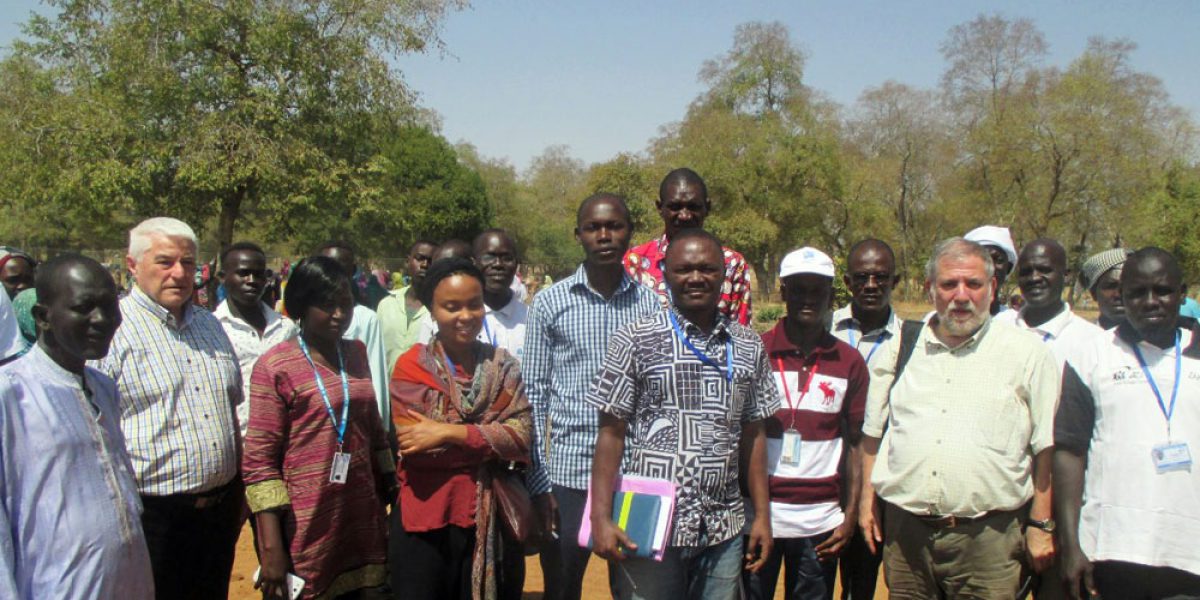Opening a future with schools: JRS in Chad
22 February 2016

N’Djamena, 22 February 2016 – JRS Europe regional director Jean-Marie Carrière shares his impressions from a recent visit to JRS Chad. The visit coincided with the opening of two wells at the Koukou refugee camp where JRS runs schools for Sudanese refugees.
School children clap their hands and sing under the direction of their teacher. They arrive by the hundreds, neatly arranged by classes. Boys and girls, young and old, it’s a holiday, we leave the school to go to the fields.
The authorities are comfortably installed in the armchairs that have the indication of their position. We greet them and we appreciate the shade while already – it’s about 9 am – the sun is hot. Girls serve drinks and roasted peanuts.
Today, parents take delivery of the keys. Two wells of ten meters deep, each with a pump to store water in big tanks, were built by a local NGO, with the help of the local Chadian Commission for refugees, so the school can grow vegetables on a plot of one hectare. The keys are now entrusted to parents of students.
This will offer some additional revenue for schools, and for their management. For JRS, this is an income-generating activity which complements the main commitment to education and schools. Through this, JRS helps a little with the socialization of 20,000 Sudanese refugees in Koukou, in north-eastern Chad, present there for more than a decade.
In both sites of Jabal and Koukou, the work of JRS in the school service is impressive; for example, in Koukou there are more than 8,500 students, 190 teachers and administrators and 120 classrooms. It has a dignity factor, as evidenced by the uniforms of students in Jabal, which makes them very proud, like in an English college!
This is an especially true commitment to the future, to try to secure, in difficult conditions, via both material and financial needs, a future for children in refugee camps. This creates a movement and a dynamic of accountability. During the visit of the three JRS regional directors of West Africa, Europe and the Middle East and North Africa (MENA) in Koukou, we were invited by a group of thirty people who took the initiative to learn and improve their English and have found a teacher for help. Their dream: to go to study at university – as also suggested by the JRS program with JC: HEM (Jesuit Commons: Higher Education at the Margins) in Goz Beida.
In Europe, we are faced with the "integration" of refugees that reach our country. This is a long-term perspective for us. In Africa, the issue of refugees is gradually becoming a development issue, as we have seen in Eastern Chad. JRS can mutually learn to face these new challenges through the accompaniment of refugees.
In Koukou there are more than 8,500 students, 190 teachers and administrators and 120 classrooms. It has a dignity factor, as evidenced by the uniforms of students in Jabal, which makes them very proud, like in an English college!
